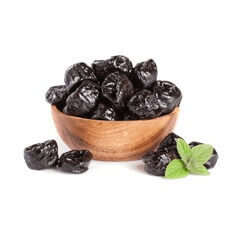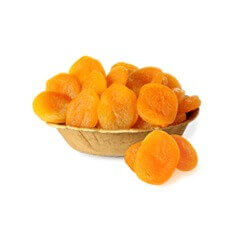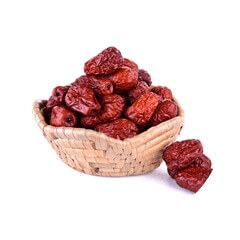The Nutritional Powerhouses: Exploring the Health Benefits of Dry Fruits
Dry fruits are a popular and healthy snack that can provide a range of important nutrients to our bodies. From almonds and walnuts to dates and raisins, dry fruits contain essential vitamins, minerals, and antioxidants that can boost our immune system, improve heart health, and even help prevent certain types of cancer. In this article, we will explore the various health benefits of different types of dry fruits and provide tips on how to incorporate them into your diet for maximum nutritional impact.
Introduction to Dry Fruits
Dry fruits are a type of fruit that has been dehydrated or dried to remove the water content. This process enhances the natural flavors of the fruit and results in a concentrated source of nutrients. The most commonly consumed types of dry fruits include raisins, figs, dates, apricots, and prunes, but there are many other varieties available. These fruits are a staple food in many cultures and are often enjoyed as a healthy snack or used in cooking and baking.
Nutritional value
One of the main benefits of dry fruits is their nutritional value. They are rich in essential vitamins and minerals, including vitamin A, vitamin B complex, vitamin C, calcium, potassium, and iron. Dry fruits also contain antioxidants, which can help protect the body against harmful free radicals that can cause cell damage and increase the risk of chronic diseases. Additionally, many types of dry fruits are high in dietary fiber, which can help regulate digestion and promote feelings of fullness.
Long shelf life
Another advantage of dry fruits is their long shelf life. Unlike fresh fruit, which can spoil quickly, dry fruits can be stored for months or even years without losing their nutritional value or flavor. This makes them a convenient and practical food choice, especially for people who lead busy lifestyles or live in areas with limited access to fresh produce.
Versatile food
Dry fruits are also a versatile food that can be enjoyed in a variety of ways. They can be eaten on their own as a healthy snack, added to trail mix or granola, used as a topping for oatmeal or yogurt, or incorporated into baked goods and other recipes. In many cultures, dry fruits are a traditional ingredient in savory dishes as well, such as Moroccan tagines and Indian curries. While dry fruits are generally considered a healthy food choice, it is important to keep in mind that they are also high in calories and natural sugars. This means that they should be consumed in moderation as part of a balanced diet. Additionally, some types of dried fruits may contain added sugars or preservatives, so it is important to read the labels carefully when purchasing them.

Rich Source of Essential Vitamins and Minerals
Dry fruits are a rich source of essential vitamins and minerals, making them an excellent addition to any healthy diet. These nutrient-dense foods provide a concentrated source of many essential vitamins and minerals that are vital for maintaining good health and preventing disease.
High in vitamin A
For example, many types of dry fruits are high in vitamin A, which is important for healthy vision, immune function, and skin health. Raisins, apricots, and prunes are all good sources of this vitamin. Additionally, dry fruits like dates and figs are high in vitamin B complex, which is essential for energy production and maintaining a healthy nervous system.
Source of vitamin C
Dry fruits are also a great source of vitamin C, which is important for immune function, skin health, and wound healing. Some of the best sources of vitamin C among dry fruits include apricots, raisins, and prunes. Calcium is another essential nutrient that can be found in many types of dry fruits. Calcium is important for building strong bones and teeth, as well as maintaining healthy muscles and nerves. Figs, apricots, and prunes are all good sources of calcium.
Potassium
Potassium is another important mineral that can be found in many types of dry fruits. This mineral is essential for maintaining healthy blood pressure, nerve function, and muscle function. Some of the best sources of potassium among dry fruits include dates, apricots, and raisins. Iron is another mineral that can be found in many types of dry fruits. Iron is important for maintaining healthy red blood cells, which carry oxygen throughout the body. Prunes, raisins, and apricots are all good sources of iron.
Antioxidant Properties of Dry Fruits
Dry fruits are known for their high antioxidant content, making them a valuable addition to any healthy diet. Antioxidants are compounds that help protect the body against harmful free radicals, which can cause cellular damage and contribute to the development of chronic diseases such as cancer, heart disease, and Alzheimer’s disease.
Rich in antioxidants
Many types of dry fruits are rich in antioxidants, including flavonoid, carotenoids, and phenolic acids. For example, dried apricots are a great source of carotenoids, which have been shown to have strong antioxidant properties. Similarly, prunes and raisins are rich in phenolic acids, which have been linked to a reduced risk of chronic diseases such as cancer and cardiovascular disease. Another type of antioxidant found in many dry fruits is vitamin E. Vitamin E is a fat-soluble vitamin that acts as an antioxidant by neutralizing free radicals in the body. Dry fruits such as almonds and hazelnuts are particularly high in vitamin E, making them an excellent source of this important nutrient.
Have anti-inflammatory properties
Research has also shown that the antioxidants found in dry fruits may have anti-inflammatory properties. Inflammation is a natural response to injury or infection, but chronic inflammation can contribute to the development of many chronic diseases. By reducing inflammation in the body, the antioxidants found in dry fruits may help protect against these diseases. Overall, the antioxidant properties of dry fruits make them a valuable addition to any healthy diet. By incorporating a variety of dry fruits into your diet, you can help protect your body against harmful free radicals and reduce your risk of chronic diseases. Whether eaten as a snack or used in cooking and baking, dry fruits are a delicious and nutritious way to support your overall health and wellbeing.
Dry Fruits and Heart Health
Dry fruits are a heart-healthy food that can help reduce the risk of heart disease. Heart disease is a leading cause of death worldwide, but many lifestyle factors, including diet, can play a role in its development. Including dry fruits in your diet can be a simple and effective way to support heart health. One of the ways that dry fruits promote heart health is by reducing levels of “bad” cholesterol (LDL) in the blood. High levels of LDL cholesterol can lead to the buildup of plaque in the arteries, which can increase the risk of heart disease. However, research has shown that incorporating dry fruits into the diet can help reduce LDL cholesterol levels and improve overall heart health. Dry fruits are also a good source of dietary fiber, which can help reduce the risk of heart disease by lowering levels of cholesterol in the blood. Fiber can also help regulate blood sugar levels, which is important for maintaining overall heart health.
Rich in potassium
Additionally, many types of dry fruits are rich in potassium, which is an important mineral for heart health. Potassium helps regulate blood pressure by counteracting the effects of sodium in the diet. High blood pressure is a risk factor for heart disease, so including potassium-rich foods like dry fruits in the diet can help reduce the risk of developing this condition. Furthermore, dry fruits contain antioxidants, which can help protect the heart from damage caused by free radicals. Free radicals are unstable molecules that can damage cells and contribute to the development of chronic diseases, including heart disease. Including dry fruits in your diet can be a simple and effective way to support heart health. By reducing levels of LDL cholesterol, providing dietary fiber, increasing potassium intake, and providing antioxidants, dry fruits can help reduce the risk of heart disease and promote overall cardiovascular health.
Dry Fruits and Digestive Health
Dry fruits are a great source of fiber, which is essential for good digestive health. Fiber helps promote regular bowel movements, prevents constipation, and supports the growth of beneficial gut bacteria. Here are some ways in which dry fruits can promote digestive health:
Prevent Constipation:
Dry fruits are high in fiber, which helps to prevent constipation by adding bulk to the stool and promoting regular bowel movements. Constipation can lead to discomfort, bloating, and even more serious digestive issues, so it’s important to maintain regularity.
Improve Gut Health:
Dry fruits can also help improve gut health by supporting the growth of beneficial gut bacteria. These bacteria play a crucial role in maintaining digestive health by breaking down food and absorbing nutrients. The fiber in dry fruits acts as a prebiotic, providing fuel for these bacteria and promoting their growth.
Reduce Inflammation:
Chronic inflammation in the gut can lead to a host of digestive issues, including inflammatory bowel disease (IBD) and irritable bowel syndrome (IBS). Dry fruits are rich in antioxidants, which can help reduce inflammation in the gut and promote overall digestive health.
Aid in Digestion:
Some dry fruits, such as figs and prunes, contain enzymes that aid in digestion. These enzymes help break down food and promote the absorption of nutrients, making it easier for the body to digest and utilize the food we eat.
Reduce Risk of Colon Cancer:
The high fiber content in dry fruits has also been linked to a reduced risk of colon cancer. Fiber helps keep the colon healthy by promoting regular bowel movements and reducing inflammation in the gut.
Dry Fruits and Weight Management
Dry fruits can be a helpful addition to a weight management diet due to their nutrient density and high fiber content. While dry fruits do contain natural sugars and calories, they are also a rich source of vitamins, minerals, and antioxidants that provide numerous health benefits. Here are some ways in which dry fruits can support weight management:
High Fiber Content:
Dry fruits are high in fiber, which helps keep you feeling full and satisfied for longer periods of time. This can help reduce overall calorie intake and prevent overeating, making them an ideal snack option for those looking to manage their weight.
Nutrient-Dense:
Dry fruits are packed with nutrients, including vitamins, minerals, and antioxidants, that can help support overall health and wellness. By incorporating nutrient-dense foods like dry fruits into your diet, you can get the nutrients your body needs without consuming excess calories.
Low Glycemic Index:
Many types of dry fruits, such as apricots, prunes, and figs, have a low glycemic index, which means they have a minimal impact on blood sugar levels. This can help prevent spikes in blood sugar that can lead to cravings and overeating.
Portion Control:
Since dry fruits are calorie-dense, it’s important to practice portion control when consuming them. One serving of dry fruits, which is typically around 1/4 cup, can provide a satisfying snack while still keeping calorie intake in check.
Healthy Snack Option:
Dry fruits make a great snack option for those looking to manage their weight. They are portable, easy to store, and can provide a quick boost of energy and nutrition between meals.
Tips for Incorporating Dry Fruits into Your Diet
Dry fruits are a delicious and nutritious addition to any diet, providing a range of health benefits from boosting energy levels to aiding digestion. Here are some tips for incorporating dry fruits into your diet:
Add Them to Your Breakfast:
Adding dry fruits to your breakfast can be a great way to start your day with a boost of energy and nutrition. You can sprinkle them over oatmeal or cereal, mix them into yogurt, or blend them into smoothies.
Use Them as a Snack:
Dry fruits make a convenient and healthy snack option, especially when you’re on the go. You can pack them in your bag or keep them in your desk drawer for a quick and easy snack between meals.
Mix them into Salads:
Adding dry fruits to salads can provide a burst of flavor and nutrition. Try adding some dried cranberries, apricots, or raisins to your favorite salad for a delicious and healthy twist.
Bake with Them:
Dry fruits can add a delicious sweetness and texture to baked goods. Try adding some dried cherries or figs to your favorite muffin or cookie recipe for a healthy and tasty treat.
Use Them in Trail Mix:
Trail mix is a great way to incorporate a variety of dry fruits into your diet. You can mix together your favorite nuts, seeds, and dry fruits for a healthy and satisfying snack.
Pair Them with Cheese:
Dry fruits can make a great pairing with cheese, providing a sweet and savory flavor combination. Try pairing some dried figs or apricots with your favorite cheese for a delicious and healthy snack.
Make Energy Balls:
Energy balls are a popular snack made from a blend of nuts, seeds, and dry fruits. They are easy to make and can be stored in the fridge for a quick and healthy snack whenever you need one.
Conclusion
dry fruits are nutritional powerhouses that provide a wide range of health benefits. They are rich in essential vitamins and minerals, antioxidants, and fiber, which can help support heart health, digestive health, weight management, and more. Incorporating dry fruits into your diet is easy and delicious, with options ranging from adding them to your breakfast or salads, using them as a snack, baking with them, using them in trail mix, pairing them with cheese, and making energy balls. By including dry fruits in your diet, you can enjoy their many health benefits while satisfying your taste buds with their natural sweetness and delicious flavors. So, why not add some dry fruits to your diet today and enjoy the many benefits they have to offer?
FAQ’s
What are dry fruits?
Dry fruits are fruits that have been dried either naturally in the sun or through a dehydrator. They are commonly consumed as snacks and are known for their sweet and chewy texture.
What are the health benefits of dry fruits?
Dry fruits are rich in essential vitamins and minerals, fiber, and antioxidants, making them beneficial for heart health, digestive health, weight management, and more.
Which dry fruits are the most nutritious?
Some of the most nutritious dry fruits include almonds, walnuts, raisins, dates, apricots, prunes, figs, and cranberries.
How can I incorporate dry fruits into my diet?
Dry fruits can be incorporated into your diet in a variety of ways, such as adding them to your breakfast, using them as a snack, mixing them into salads, baking with them, using them in trail mix, pairing them with cheese, and making energy balls.
Are dry fruits high in sugar?
Dry fruits are naturally high in sugar, but they also contain fiber, which can slow down the absorption of sugar into the bloodstream. It is important to consume dry fruits in moderation as part of a balanced diet.
Can I eat dry fruits if I have diabetes?
Dry fruits can be consumed in moderation by individuals with diabetes, but it is important to monitor their intake as they are high in natural sugars.
How should dry fruits be stored?
Dry fruits should be stored in a cool, dry place in an airtight container to prevent them from becoming stale or molding. It is best to consume them within a few weeks of opening the package.









Beyond Snacking: Creative Ways to Use Dry Fruits - Adnoor
May 4, 2023[…] Dry fruits are a versatile and delicious ingredient that can add flavor, texture, and nutrition to a wide range of dishes beyond just snacking. Whether you’re looking to add some sweetness to your baked goods, give your meat dishes a unique twist, or create a healthy and flavorful breakfast, dry fruits can provide a tasty and nutritious addition to your recipes. With their high concentration of essential vitamins, minerals, and antioxidants, dry fruits are a great way to add a nutritional boost to your cooking. By exploring creative ways to use dry fruits in your cooking, you can expand your culinary horizons and create delicious, healthy, and satisfying meals for yourself and your loved ones. So, don’t be afraid to experiment with dry fruits in your cooking and discover all the amazing ways you can incorporate them into your favorite recipes. […]